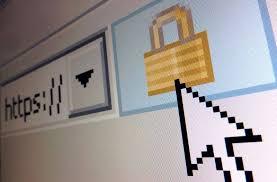
Breaking News
 HERE'S WHAT NO CASH ACTUALLY MEANS (Dave Ramsey re-post)
HERE'S WHAT NO CASH ACTUALLY MEANS (Dave Ramsey re-post)
 The Silver Shift: Why Stackers Are DUMPING 90% Silver & Buying SilverBitz!
The Silver Shift: Why Stackers Are DUMPING 90% Silver & Buying SilverBitz!
 Eye-bouncing - #SolutionsWatch
Eye-bouncing - #SolutionsWatch
 'Targeted, Antisemitism': 16 Dead, 38 Injured After Father & Son Terrorists Attack...
'Targeted, Antisemitism': 16 Dead, 38 Injured After Father & Son Terrorists Attack...
Top Tech News
 This tiny dev board is packed with features for ambitious makers
This tiny dev board is packed with features for ambitious makers
 Scientists Discover Gel to Regrow Tooth Enamel
Scientists Discover Gel to Regrow Tooth Enamel
 Vitamin C and Dandelion Root Killing Cancer Cells -- as Former CDC Director Calls for COVID-19...
Vitamin C and Dandelion Root Killing Cancer Cells -- as Former CDC Director Calls for COVID-19...
 Galactic Brain: US firm plans space-based data centers, power grid to challenge China
Galactic Brain: US firm plans space-based data centers, power grid to challenge China
 A microbial cleanup for glyphosate just earned a patent. Here's why that matters
A microbial cleanup for glyphosate just earned a patent. Here's why that matters
 Japan Breaks Internet Speed Record with 5 Million Times Faster Data Transfer
Japan Breaks Internet Speed Record with 5 Million Times Faster Data Transfer
 Advanced Propulsion Resources Part 1 of 2
Advanced Propulsion Resources Part 1 of 2
 PulsarFusion a forward-thinking UK aerospace company, is pushing the boundaries of space travel...
PulsarFusion a forward-thinking UK aerospace company, is pushing the boundaries of space travel...
 Dinky little laser box throws big-screen entertainment from inches away
Dinky little laser box throws big-screen entertainment from inches away
 'World's first' sodium-ion flashlight shines bright even at -40 ºF
'World's first' sodium-ion flashlight shines bright even at -40 ºF
Russia plans 'sovereign internet' tests to combat external threats

The threat testing will take place in stages on Dec. 23 and will not affect regular internet users, the ministry said on Thursday.
Russia enacted a law known as the "sovereign internet" bill in November, aimed at tightening state control over the network, but which free speech activists say will strengthen government oversight of the country's cyberspace.
The law was developed in response to what Russia calls the "aggressive nature" of the United States' national cyber security strategy, which accuses Moscow of carrying out hacking attacks, as a means to ensure the internet continues functioning in Russia.
According to the law, all communications operators, messengers and email providers must participate in the tests, as well as state-run institutions and security services.
At his annual news conference with journalists on Thursday, President Vladimir Putin insisted that a free internet and a sovereign internet did not contradict one another.



